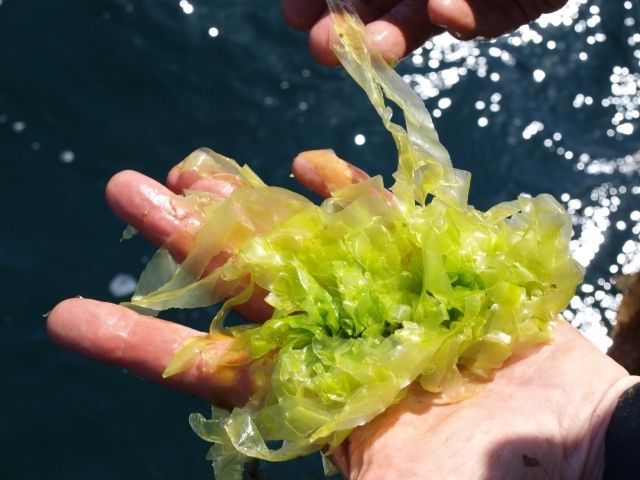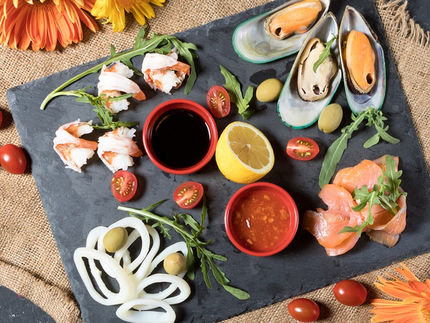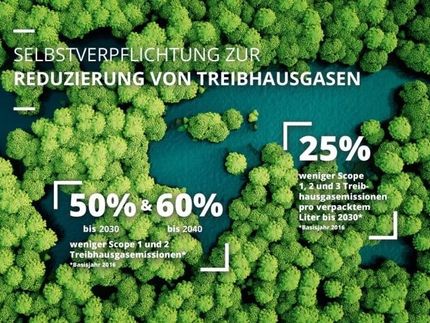Macro algae in Feed to Reduce Greenhouse Gases (CFC) from Dairy Cows
Advertisement
Macro algae can contribute to reduction of agricultural release of greenhouse gases. This is the objective of the research project, Climate Feed, supported by Innovation Fund Denmark, that aims to develop feed additives with macro which can reduce cows’ release of greenhouse gases.

The objective is to develop a feed additive from seaweed for livestock with documentation of the climate effect.
Michael Bo Rasmussen
Agricultural release of CO2 and greenhouse gases make up as much as 20 per cent of Denmark’s total CO2 emissions. A large part of these climate burdening emissions comes from ruminant cows where each of them burps no less than 5-700 litres of methane every 24 hours.
A number of Danish researchers and companies are set to make joint efforts to change this situation. Supported by Innovation Fund Denmark, these researchers aim to develop a feed additive for cows consisting of seaweed which can reduce the release of greenhouse gases from cows’ stomachs.
Many Environmental Benefits with macro algae
- Brown-, green- and red algae from Nordic waters contain different bioactive agents, including tannins and antioxidants which can stop the development of methane in cows’ rumen. The objective is to develop a feed additive for livestock with Nordic macro algae types which, in measured amounts, will show documented evidence of the effect on the development of methane in livestock, says the project manager, Anne-Belinda Bjerre, technical manager at Danish Technological Institute.
The project aims to develop methods of cultivating and subsequently processing seaweed into a complete feed additive in the form of dried powder or pills easy for the farmer to add to their feed. This product will have a well-known and stable content of the active agents that reduce the release of greenhouse gasses from livestock without reducing the milk yield or the quality and taste of the milk.
-
Macro algae has many benefits: It is produced at sea and needs neither fertilizers nor fresh water. In return, macro algae, while growing, collects part of the nutrients discharged into the sea from agriculture and sea farming. According to Anne-Belinda Bjerre this will result in both a cleaner sea environment and a more sustainable production system.
There are more Promising Types of macro algae in Danish Waters
The types of macro algae to be used in the project will be selected among 400 types of macro algae present in Danish waters. However, the project partners already have focus on a few promising types, including large brown algae already cultivated both in Denmark and near the Faroe Islands by the company Ocean Rainforest.
In collaboration with Aarhus University, the company Dansk Tang will be involved in the selection of the best seaweed types and cultivation methods. The selected types will be processed in Denmark by, among others, Vilofoss and DLG. After this processing, a test livestock of dairy cattle will be fed the additive of macro algae powder while Danish Technological Institute, Aarhus University and SEGES will provide continuous documentation of the reduction of methane release from the cows.
The company Vilofors owned by DLG and thus by Danish farmers has manufacturing plants in 15 European countries and will be in charge of the commercialization of the finished feed additive and mineral mixture with seaweed with a documented effect on greenhouse gases from cows.
The dairy Naturmælk will be first as supplier of organic milk in Denmark produced with macro algae additives in the feed. It is expected that farmers supplying other dairies will very soon use the macro algae product as a feed additive. The macro algae additive may also have other positive effects, including lower livestock feed consumption as a result of a reduced loss of energy in the form of methane.
Danish Technological Institute estimates that it would be realistic that Nordic macro algae farms will manage to cultivate acreage the size of Bornholm. This would supply about 40 per cent of the cows in the six largest milk producing EU countries and thus contributing to a more climate-friendly milk production.




























































